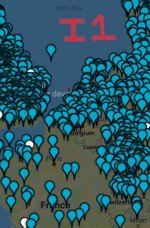mwauthy
Regular Member
- Messages
- 284
- Reaction score
- 43
- Points
- 0
- Location
- California
- Ethnic group
- Namur Belgium and Quebec Canada
- Y-DNA haplogroup
- I-FT213710
- mtDNA haplogroup
- K2a6
I think you misunderstood my point. When the Franks moved into Toxandria the Romans still had an empire for two more centuries. The road mentioned in the previous text was the northernmost Roman road in the area and on a map it almost matches the linguistic division in Belgium.@mwauty
a bit dubious your explanation, without offense.
Why a roman road could stay a frontier in Germanics times after the departure of Romans and the demantlement of their western empire part? I rather think the today frontier, stable enough by time, is the result of a desiquilibrium between the composing components of the human groups along it. There were Germanics and Celts descendants on both sides but more germanics in North, the opposite in South; the only exception could be Liege region but some other reasons than only ethnic ones could have played a role for Liege/Liek. Just a guess.
Romans cared less about what was happening north of the road and were not really interfering in the Frankish affairs or culture allowing Flemish to be retained. The importance of trade from Boulogne to Cologne meant it was heavily guarded and the social structure and language of the settled Franks south of the road remained Romanized and Latinized for the 6 or 7 generations until the eventual collapse of the empire.
The reason I think it remained latinized after the collapse was due to the population already adapted to the Roman way of life including its leaders with no new invaders displacing them or their language.
It's hard for me to post images or attachments. However, if you take a look at a map of the Via Agrippa and how it cut through Belgium it is quite striking.
Like Maciamo has said the Frankish leaders continued this Latinization having their capitals at Tournai and Liege and considered themselves the heirs of the Roman Empire.
Last edited:


